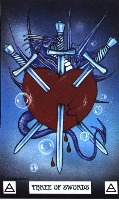
Update: The command syntax has slightly changed with the latest version. Please see instructions below. I'm a GM for a small group, and one of my players always struggles when it comes to handling the money. Whenever the party got some coins as reward or they were buying supplies, this player was always over-challenged with adding and subtracting the amounts - especially if it involved converting from one coin type to another (and electrum coins always made her rage-quit ^^). So I tried to assemble a small script that helps me as a GM to take care for it directly. It currently works with the 5th OGL character sheet only - never tested it on anything else. That being said - I'm not a programmer, so the code probably is quite messy. But it does what it is supposed to do, so I'm fine with that. Latest version of Cashmaster (v0.9.1) --- CashMaster A currency management script for the D&D 5e OGL sheets on Roll20.net. Please use !cm for inline help and examples. Setup Player Setup Create a macro bar button for the command !cm -menu Press the CashMaster button you just created. It will display a menu in the chat log. Click on your character token Press the chat UI button titled Set Default Character. GM Setup Create a macro bar button for the command !cm -menu Press the CashMaster button you just created. It will display a menu in the chat log. Select the character tokens of ALL party members and companion NPCs. Do not select pets or mounts unless the party considers them an equal member of the party (and thus should be a valid recipient for -loot and similar commands). Such creatures must have full character sheets with currency fields. Press the chat UI button titled Set Party to Selected. For each shopkeeper, press the [Show Shop on Selected] button in the menu. The shopkeeper must have a character sheet and the token must point to it. Player Commands Help Commands !cm or !cm -help or !cm -h will show this help overview !cm -menu or !cm -tool to bring up the user menu !cm -status or !cm -ss to display your current coin purse contents Accounting commands A character has a tracked account if it has discrete values for its saved coins. PCs necessarily have tracked accounts while NPCs usually do not, instead having as much gold as the DM feels is necessary at that moment. - !cm -transfer "[recipient character name]" [amount][currency] or !cm -t "[recipient character name]" [amount][currency] to transfer coins to the recipient's tracked account. - !cm -invoice "[recipient character name]" [amount][currency] or !cm -i "[recipient character name]" [amount][currency] to request coins to the recipient's tracked account. - !cm -giveNPC "[NPC Name, service rendered]" [amount][currency] or !cm -dropWithReason "[reason for dropping coins]" [amount][currency] to move coins from the player's tracked account to an untracked account. Shop Commands !cm -viewShop or !cm -vs will display the shop data of the selected token to all players. The GM is presented with both the player view and the edit view. !cm -viewItem "[item name]^[shopkeeper name]" will display the details of a particular item from the specified shopkeeper. This is used when the GM sets verbosity to low. !cm -buy "[item name]^[shopkeeper name]" will attempt to purchase the named item from the named shopkeeper. If you have sufficient funds, the funds will be removed and you will be presented with a purchase message. If you are using the OGL character sheet, you will also find it transferred into your inventory. GM Commands In addition to the above commands, the GM has access to the following commands. Help commands !cm or !cm -help or !cm -h will show this help overview !cm -overview or !cm -o to get an overview over the party's cash !cm -overview --usd will also give you an overview and a rough conversion to USD (default value: 1 gp equals roughly 110 USD). Accounting Commands These operations directly add and remove gold from party inventories. - !cm -add [amount][currency] or !cm -a [amount][currency] to add an equal amount of money to each selected party member, - !cm -loot [amount][currency] or !cm -l [amount][currency] to split up a certain amount of coins between the party members, like a found treasure. Note that in this case, no conversion between the different coin types is made - if a party of 5 shares 4 pp, then 4 party members receive one pp each, and the last member won't get anything. - !cm -sub [amount][currency] or !cm -pay [amount][currency] or !cm -p [amount][currency] to let each selected party member pay a certain amount. The script will even try to take higher and lower coin types to get the full amount. E.g. to pay 1gp when the character has no gold, the script will use 1pp (and return 9gp), or it will take 2ep, 10sp or 100cp - or any other valid combination of coins - to pay the desired amount. Admin Commands Use caution when using the below commands. - !cm -merge or !cm -m to merge coins to the densest denomination possible. - !cm -share or !cm -s to reallocate and share the money equally between selected party members, converting the amount into the best combination of gold, silver and copper (this should be used in smaller stores), - !cm -best-share or !cm -bs to reallocate and share the money equally between selected party members, converting the amount into the best combination of platinum, gold, electrum, silver and copper (this should only be used in larger stores that have a fair amount of cash), - !cm -setParty or !cm -sp to set the default party list. These will be the default targets for party actions if you have nothing selected. - !cm -revert or !cm -r reverts a given transaction id. This is an internal command used to revert transactions. Shop Commands These commands set up and manipulate shops. - !cm -makeShop "[shop name]^[shop location]^[shop appearance]^[shopkeeper appearance] creates a shop for the selected character token with the assigned attributes. The token must point to a character sheet. If you wish to have a single shop with multiple shopkeepers, use rollable tables and have them feed to the same character sheet for the shop. - !cm -setShopVerbosity [high|low] sets the amount of information that is printed out when displaying a shop. - !cm -updateShop "[parameter name]^[parameter value]" will update the named parameter to the new value. - !cm -addItem "[item name]^[price]^[description]^[quantity]^[weight]^[properties]^[modifiers]" creates a new item in the selected token's shop. - !cm -updateItem "[item name]^[parameter name]^[parameter value]" will look up the specified item name in the selected token's shop and update the named parameter to be the specified value. - !cm -updateItem "[item name]^DELETE^YES" will delete the specified item from the selected token's shop. - !cm -updateItem "[item name]^DUPLICATE^YES" will duplicate the specified item, adding a new item to the end of the shop's list of items named "Copy of [item name]" . Tips -noToken and -nt will cause CashMaster to disregard what character is selected. You can use several coin values at once, e.g. !cm -loot 50gp 150sp 2000cp or !cm -pay 2sp 5cp . You can combine multiple subcommands into a single chat command with a double-semicolon ;; between them. For example, !cm -add 5gp; -merge You can select multiple subjects and targets using Advanced Mode . For example, !cm -transfer -S "Billy Bob^Joe Bob" -T "Sarah Bob^Sonya Bob" -C "10gp" . When using multiple subjects and targets, it will perform an operation for each subject-target pair. In that case, it will perform four transactions of 10gp each. In Advanced Mode , you don't need to specify -C "[amoung][currency]" and can instead just use the standard [amount][currency] . The -C currency tag allows you to specify the gp value at a particular point in the command in case you have strangley-named or inconveniently ID'd characters. CashMaster will parse both character IDs and character names . You can even mix and match! If Billy Bob's ID was -L4ncF3ych3ZLtWaY3uY , Instead of the example in Tip 4 , you could use !cm -transfer -S "-L4ncF3ych3ZLtWaY3uY^Joe Bob" -T "Sarah Bob^Sonya Bob" -C "10gp" . CashMaster is compatible with @{selected|character_id} and @{target|character_id} as they will simply be parsed down to IDs. As an example, your players could use !cm -t -T "@{target|character_id}" 1gp to transfer a gold amongst themselves. Examples !cm -overview will show a cash overview. !cm -add 50gp will add 50 gp to every selected character. !cm -loot 50gp will (more or less evenly) distribute 50 gp among the party members. !cm -pay 10gp will subtract 10gp from each selected character. It will try to exchange the other coin types (e.g. it will use 1pp if the player doesn't have 10gp). !cm -share will collect all the money and share it evenly on the members, using gp, sp and cp only (pp and ep will be converted). Can also be used for one character to 'exchange' money. !cm -transfer "Tazeka Liranov" 40gp will transfer 40 gp from the selected token to the character sheet named Tazeka Liranov. !cm -convert - same as !cm -share , but will also use platinum and electrum. Credits With thanks to Kryx / mlenser and Michael G. / VoltCruelerz for their contributions.








